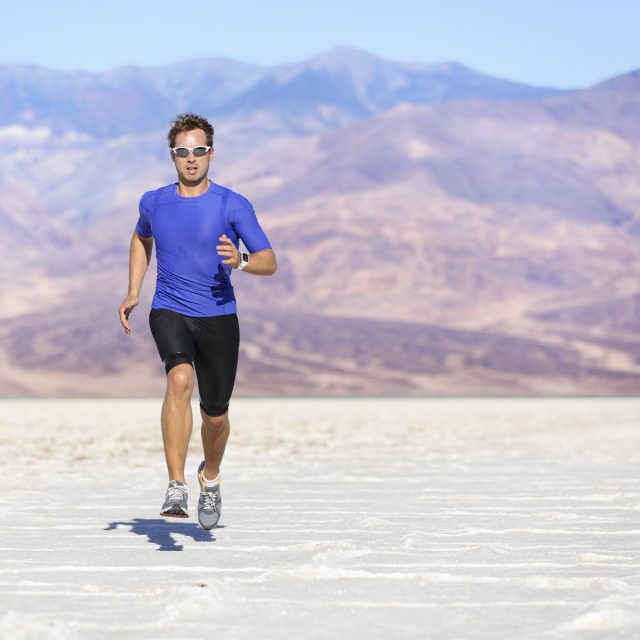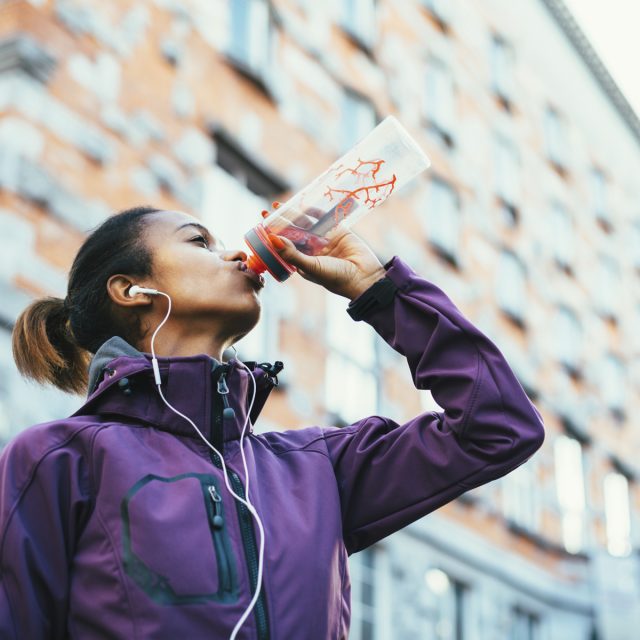WHY DO I HAVE A HIGH HEART RATE DURING EXERCISE BUT FEEL FINE?
by ZIYA ASIA on Aug 11, 2023
Your heart rate during exercise may vary from one training session to another, depending on the intensity of your workout, of course. But what factors may cause a high heart rate during exercise, even if you feel fine?
- Type of exercise
- Heat and humidity
- Hydration
- Altitude
- Energy levels
Imagine this.
The sun is beaming down on you. Your feet are pounding on the hard asphalt as you run higher towards your favorite vantage point over the city. All you hear is the birds chirping. And your heart beating. Fast.
Actually, it’s beating faster than usual. You check your heart rate monitor. Your heart rate is eight beats quicker than normal.
“What? Is this normal?” Yes, it’s perfectly normal. If you’ve been monitoring your heart rate during exercise over an extended time, you know that it changes from one training session to another. The same route that felt easy yesterday might suddenly feel like someone set your world at a 2% incline.
The intensity of your training and your current level of aerobic fitness will influence your heart rate. Still, moreover, these five factors may also explain why you suddenly have a high heart rate during exercise (but feel fine).
TYPE OF EXERCISE
Heart rate changes across activities as you use different muscles and work out at different intensity levels.
For example, running an obstacle course activates large muscle groups and is decidedly different than doing super sets on your biceps brachii at the gym. In fact, running typically elicits the highest maximum heart rate during a stress test, whereas in cycling or paddling, your top heart rates can be 10–15 beats lower during the same test.
HEAT AND HUMIDITY

As things get hot and humid, your heart rate usually goes up. For example, your heart rate will gradually increase throughout your run, even if your pace doesn’t change.
Your body tries to cool itself down during exercise, typically by sweating. Humidity reduces the effectiveness of sweating, which means your body temperature goes up – together with your heart rate.
If it’s hot but not humid, your heart rate will still be elevated because of the extra work the heart must do to help cool your body. In these conditions, your heart rate could be 5–10 beats above normal ranges. No need to sweat, though: you can use your heart rate with perceived exertion and subjective feeling to set an appropriate pace.
HYDRATION

We need water – lots of water.
Sounds easy enough, but it’s also easy to forget the three essential to-dos when it comes to staying hydrated: drink, drink, drink.
If you’re not adequately hydrated, your heart rate can increase because your blood volume decreases, and your body runs low on the fluids it needs to maintain body temperature.
It’s important to remember that it’s not just in the desert where you can get dehydrated. It can occur in cold as well as hot environments.
If you notice your heart rate increasing with no change in your pace or other variables, increasing your fluid intake might be a good idea.
ALTITUDE

You’ve probably heard many stories of elite athletes that go to high altitude areas to train for several weeks. That’s because altitude greatly affects our ability to performance physical activity.
In simple terms, at high altitudes, the air is thinner and contains less oxygen, which means the body has to work harder to deliver oxygen to the muscles. As a result, the heart has to beat faster in order to maintain an adequate supply of oxygen to the body.
In response to this situation, the body will make more red blood cells to better transport the oxygen available. For elite athletes, these higher levels of red blood cell production will bring temporary benefits when competing at sea level.
If you travel to a high altitude destination and work out, you’ll notice a higher heart rate. Before the adaption process occurs, your heart will be working hard to supply oxygen to your muscles, so you should adjust the intensity of your training during your first days at altitude.
ENERGY LEVELS
There are three energy sources for your body: carbohydrates, fats, and proteins.
As the exercise intensity increases, you burn more carbohydrates and less fat proportionally. (Protein metabolism is always relatively small.) And even at low intensities, you always need some carbohydrates to burn fats.
But what does all this have to do with your heart rate?
If you start to exercise low on carbohydrates, you’ll find it challenging to maintain your pace at a given heart rate. Your perceived exertion and subjective feeling will increase. In other words, you’re more likely to decide you’ll never exercise again. Ever. And while you’re doing that, your heart rate will be falling.
This situation is informally called ‘bonking’ and can be remedied by eating foods high in carbohydrates. As a rule of thumb, always have some form of ingestible energy with you for any exercise session lasting more than two hours.
So, there you go – five reasons you may experience a high heart rate during exercise but still feel fine. Remember to think about what is different about this particular workout, drink plenty of water, fuel your body correctly, and always stop if anything doesn’t feel right.
Please note that the information provided in the Polar Blog articles cannot replace individual advice from health professionals. Please consult your physician before starting a new fitness program.




